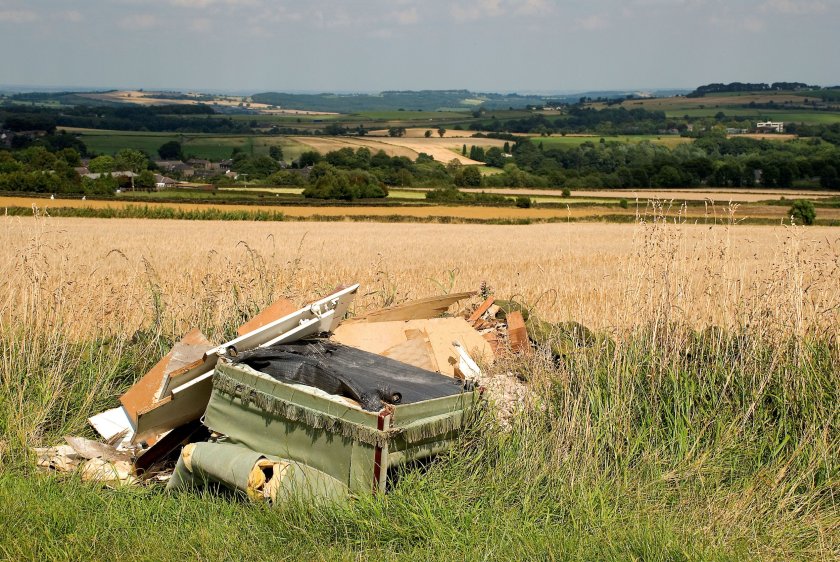
Farmers hit by the scourge of fly-tipping have welcomed plans to abolish fees that local authorities charge for disposing of DIY waste at recycling centres.
Following overwhelming support from the farming industry and the wider public, households will no longer have to pay to get rid of DIY waste from the new year.
The changes mean that councils will treat DIY waste the same as household waste and follows industry lobbying to make it easier for householders to dispose of their unwanted items.
Farmers have reported a surge in fly-tipping activity of household waste since the recycling centre charges were introduced.
The charges were seen as a deterrent to householders and illegitimate third parties who are employed to dispose of DIY waste, opting instead to dump it on farmland to avoid council charges.
The NFU, which lobbied for the change, said the move should encourage anyone with waste to dispose of it at a recycling centre, thus reducing on-farm fly-tipping incidents.
“The NFU has long called for action to make it easier for the public to recycle rubbish," said NFU vice president David Exwood.
“Waste crime and fly-tipping continues to plague the lives of so many of us living and working in the countryside."
Fly-tipping and waste crime is estimated to cost the economy around £924 million per year in England.
According to the most recent Defra statistics, two thirds of fly-tipping incidents are from household waste.
Fly-tipping was the most prolific category of rural crime experienced by farmers according to the NFU's 2021 Rural Crime Survey.
Nearly half (48%) of those surveyed said they had been affected by fly-tipping in the previous 12 months.
Earlier this year, the Environment Agency released its own survey results, with them showing that 86% of farmers were affected by fly-tipping
Mr Exwood added that increasingly, farmers were seeing industrial-scale amounts of rubbish, such as builder’s rubble and hazardous materials.
“This is affecting farmers’ efforts to produce food and care for the environment but is also taking a huge toll emotionally and financially.”
